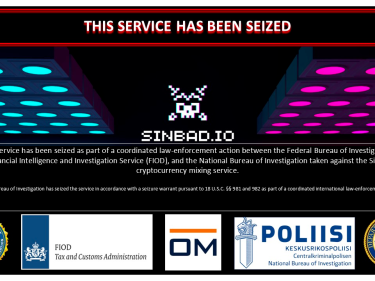In today’s issue: Blockstream, Eclipse, Pond, Puffer, Cytonic, Algorand, Polygon, Magic Labs, Hyperbridge, Polkadot, IllumineX, Oasis, Solv, Outlier Ventures, Router Protocol, Symbiotic, Omni, Dune, Galaxy Digital.
Blockstream, the development firm led by early Bitcoin developer Adam Back, has opened an R&D hub in Lugano, Switzerland, “to foster fintech innovation on Bitcoin’s Liquid and Lightning networks,” according to the team: “The new center aims to significantly increase innovation on layer 2’s by collaborating with local startups and partners, providing resources, mentorship, as well as grants to standout projects. The initiative builds on successful events co-hosted by Blockstream in Lugano and Viareggio, Italy, aligned with its mission to expand Bitcoin’s role in modern finance.” A couple photos were sent over by the team:
:format(jpg)/cloudfront-us-east-1.images.arcpublishing.com/coindesk/OSBPY7JQTNDMFEKXX7T37H2FPI.png)
:format(jpg)/cloudfront-us-east-1.images.arcpublishing.com/coindesk/VRK6ZMU5ZJEB7PVCYK75CU5VTA.png)
Eclipse launched its long-awaited mainnet blockchain on Thursday — introducing a first-of-its-kind layer-2 network that melds tech from the popular Ethereum and Solana blockchains into a single package. Like other layer-2 Ethereum rollups, Eclipse lets people transact on Ethereum with faster speeds and lower fees. To accomplish this, it operates as its own network, written using the Solana Virtual Machine (SVM) — the fast and cheap execution architecture spearheaded by Ethereum’s biggest competitor, Solana. Similar to other layer 2s, Eclipse bundles up transactions from its users and periodically passes them down to the base Ethereum chain, where they’re cemented permanently to the chain’s ledger.
Pond, building a decentralized AI model layer for crypto, has raised $7.5 million in a seed round led by Archetype, joined by more than 30 notable angels including Near co-founders, according to a message from founder Dylan Zhang. “Pond is building a decentralized AI model layer for crypto, using on-chain data to power predictive tools and autonomous agents in DeFi, trading and security. With a top AI team, Pond aims to democratize model ownership, enabling developers to create, own and monetize AI models on Web3, driving a new wave of AI applications in the crypto space,” Pond wrote.
PROTOCOL VILLAGE EXCLUSIVE: Puffer Finance, a decentralized native liquid restaking protocol, has announced the testnet launch of UniFi, described as a “based rollup to Ethereum which is low-cost, capable of sub-second transactions and allows asset withdrawal from L2 (UniFi) to L1 (Ethereum) within a minute.” According to the team: “UniFi’s preconfirmations offer a strong improvement over traditional soft confirmations by using Ethereum validators instead of centralized sequencers, ensuring near-instant confirmation times with enhanced reliability, as validators face penalties for failing to include transactions. Puffer Testnet is currently open to builders.”
Cytonic, a layer-1 blockchain known as “MultiVM” designed to be open to all technologies used in Web3, has closed its $8.3 million seed round, co-led by Lemniscap and Lattice. According to the team: “Developed by MultiVM Labs, Cytonic is the first layer 1 that runs multiple VM’s within the same network layer using shared storage, addressing blockchain compatibility challenges. Cytonic is compatible with most blockchains like Bitcoin, Ethereum, and Solana, enabling different transaction types to be processed together in a single block. The goal is make on-chain interactions easier while reducing transaction fees and waiting times when moving assets between chains.”
:format(jpg)/cloudfront-us-east-1.images.arcpublishing.com/coindesk/7FQOJW7VHJFGNC7UDXT5VBQQ5Y.png)
The Algorand blockchain is preparing to roll out what it describes as “crypto’s most inclusive staking rewards program.” According to the team: “Scheduled to go live in December after a consensus mechanism upgrade, ‘block rewards’ will start to be paid, in real-time, to validators successfully proposing blocks to the layer-1 blockchain. The rewards begin at 10 ALGO per block and will decay by 1% every 1 million blocks. Validators will also receive 50% of the transaction fees of the blocks they successfully propose.” (ALGO)
ARPA Network has partnered with Tomo Wallet to bring secure, on-chain random number generation to Telegram Mini Apps through Randcast, according to the team: “Now, developers can build next-generation decentralized applications and games within the Telegram ecosystem, using verifiable randomness to enhance fairness, security, and user experiences for over 1 billion Telegram users worldwide.”
:format(jpg)/cloudfront-us-east-1.images.arcpublishing.com/coindesk/7SMD4WS7KRCWXPO3EEOZMVFQOU.jpg)
Magic Labs, a wallet infrastructure provider, shared Thursday that it has integrated with Polygon’s AggLayer to provide a network dedicated to chain unification, called Newton. The project will allow for wallet solutions to plug into the AggLayer, which is a Polygon-backed effort to connect affiliated chains and allow tokens to freely move between them. Magic Labs claims its the first dedicated network for wallet solutions and chain unification.
Hyperbridge, a blockchain interoperability protocol, has launched its mainnet on Polkadot, and supports Ethereum, Optimism and BNB Chain. According to the team: “With $2.5 million in seed funding led by the Web3 Foundation and Scytale Digital, it provides secure & scalable cross-chain solutions. Key features include the Gateway token bridge, which leverages zk-proof security for asset transfers, instant multichain liquidity and cross-chain messaging. Hyperbridge supports use cases like unified liquidity pools and multichain expansion for DAOs and stablecoins, positioning itself as a robust infrastructure for DeFi.” According to the project documentation, Hyperbridge relies on the “coprocessor model, where the verification operations are performed offchain and the results are securely reported back on-chain alongside cryptographic proofs of correct execution.”
:format(jpg)/cloudfront-us-east-1.images.arcpublishing.com/coindesk/KO27OAYCNNHJ3HMF4MEZIOM23A.png)
IllumineX, a non-custodial and cross-chain privacy solution supported by the Oasis Network, announced the launch of its privacy-focused and complaint-friendly crypto wallet supporting EVM and non-EVM chains, including native Bitcoin. According to the team: “This launch aims to address the significant privacy challenges facing crypto users today. This is the first and only privacy solution for Bitcoin that does not rely on mixer technology.”
Spark, a DeFi hub, has launched what it claims is “the first on-chain order book on Ethereum, powered by Fuel VM.” According to the team: “Leveraging Fuel’s modular architecture, Spark offers secure, efficient trading with central limit order books (CLOBs), tailored for professional and institutional traders. Fully on-chain, Spark enhances transparency, prevents front-running and ensures self-custody. This breakthrough overcomes automated market makers (AMMs) and centralized exchange (CEX) limits, setting a new DeFi standard with Fuel’s speed, scalability and precision for decentralized trading.”
Solv Protocol, a Bitcoin staking platform, has introduced a classification system for the underlying assets of its SolvBTC reserve, dividing them into Core Reserve (native BTC, Binance-backed BTCB) and Innovative Reserve (wrapped assets like WBTC, cbBTC), according to the team: “This setup enhances stability and risk management through minting caps and cross-chain rate limits on the Innovative Reserve. Now one of the largest multichain BTC liquid staking token issuers, Solv spans 10+ networks, including Ethereum and BNB Chain, with over 24,000 BTC ($2 billion) in reserves, offering secure, yield-generating opportunities in DeFi.”
Outlier Ventures, a Web3 accelerator, announced the five teams selected for its LatAm Base Camp accelerator: Bando (Mexico), Berry Investing (Argentina), Fact Finance (Brazil), IDENTI (Peru) and Loula (Argentina). According to the team: “Over a 12-week program, the cohort will receive support from Outlier Ventures in token design, engineering, investment, and fundraising, alongside guidance from Venture Partner, Morgan Creek Digital. The teams, chosen from across Latin America, represent early-stage startups focused on consumer fintech, OpenFI, financial inclusion, and DeFi, driving innovation within the LatAm ecosystem.”
Router Chain, a chain abstraction platform, announced a partnership with permissionless shared security provider Symbiotic. According to the team: “The move signals Router Chain’s intent to keep up with the growing security demands associated with cross-chain interactions and experiences.” A press release stated: “Symbiotic’s permissionless restaking model allows Router Chain to inherit Ethereum’s robust security model, eliminating the need to establish and maintain a new validator set to secure cross-chain interactions.”
Symbiotic, an Ethereum-based project for shared security, backed by Paradigm and Cyber.Fund, announced a strategic collaboration with Omni Network, an abstraction layer for the Ethereum ecosystem. According to the team: “Omni will integrate Symbiotic’s restaking infrastructure, while Symbiotic will leverage Omni’s cross-chain infrastructure to facilitate the first-ever direct deposits from major Ethereum rollups into an L1 protocol. This marks a significant step forward for both ecosystems, strengthening their capabilities and expanding the reach of secure cross-chain interactions.”
Crypto analytics platform Dune has launched a new dashboard mapping the extent of crypto-related cybercrime, documenting over 5,500 incidents of hacks, exploits, and phishing scams across the blockchain ecosystem. The platform’s “Hacks, Exploits and Social Engineering Dashboard” represents one of the most comprehensive efforts yet to quantify crime in crypto.
:format(jpg)/cloudfront-us-east-1.images.arcpublishing.com/coindesk/3VUE3PVCGZGEDFEQSPGECNVWT4.png)
The brutally competitive bitcoin (BTC) mining industry is offering a clear choice to miners: pivot to artificial intelligence (AI) computing or suffer losses. Michael Novogratz’s Galaxy Digital (GLXY.TO) is the latest to join the exit queue. The New York-based company signed a non-binding term sheet with an unidentified U.S.-based hyperscaler firm that could convert all its 800 megawatt (MW) power capacity to high-performance computing (HPC), it said in its third-quarter earnings statement. Hyperscaler firms are large-scale data centers that specialize in providing large amounts of computing power.
Protocol Village is a regular feature of The Protocol, our weekly newsletter exploring the tech behind crypto, one block at a time. Sign up here to get it in your inbox every Wednesday. Project teams can submit updates here. For previous versions of Protocol Village, please go here.






:format(jpg)/cloudfront-us-east-1.images.arcpublishing.com/coindesk/IKK33WMM25GEFD4IIRWNRN4UUI.png)
:format(jpg)/cloudfront-us-east-1.images.arcpublishing.com/coindesk/TG2UVBLHUJBJPLA3N5BGQDELBU.jpg)
:format(jpg)/cloudfront-us-east-1.images.arcpublishing.com/coindesk/47LKREJPRNHQHA7X57VEUH3VXI.png)


